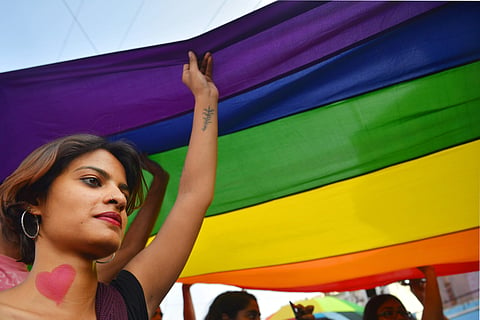

The Centre for Studies in Gender and Sexuality (CSGS), at Ashoka University organised a CSGS Mehfil to celebrate its sixth anniversary. The two-day virtual event (August 14 & 15) had poetry, conversations with scholars, artists and members about queer representation in India over the years.
The first day had a panel discussion on the evolution of queer spaces. Panelists include Myna Mukherjee, Director, Engendered Art Gallery; Moulee, Editor of Queer Chennai Chronicles’ and Curator of Queer LitFest, Chennai and Arpita Das, Founder, Yoda Press. It was followed by a performance by Kareem Khubchandani, Drag Artists who teaches at Tufts University.
Day 2 saw Madhavi Menon, Director CSGS, Ashoka University, Paromita Vohra, Founder, Agents of Ishq and Shiv Sharma — past associate of the centre, as panelists. Renowned queer poets Akhil Katyal and Aditi Angiras did a poetry duet. The day will end with a musical performance by the Ashoka University band.
“There is tremendous change, as evident from the increasing number of queer artists. Our show 10 years ago had just two openly gay artists — Balbir Kishan and Sunil Gupta. But in 2016, 24 artists participated from the community, and gave us a huge variety of work in different mediums,” says Mukherjee, works with artists marginalised for their gender sexuality or belonging to a minority group. As a panelist, she presented her views on queer representation in art, whether the community has the space to work, find visibility, and can sustain themselves.
“There are so many art shows and even dedicated departments at universities for gender and sexuality. There is definitely more expression in art, but I don’t know if the ground reality has changed. There is still a lot of shame associated with queer,” she concluded.